
24 November 2025
Join A Discussion on Pursuing a PhD with Australia Awards: Climate Resilient Communities and Energy Transition
Are you curious about doing a PhD abroad, especially in Australia? Whether you are already planning... Read more
The Australia Awards are prestigious, transformational scholarships and short courses offered to emerging leaders for study, research and professional development in Australia
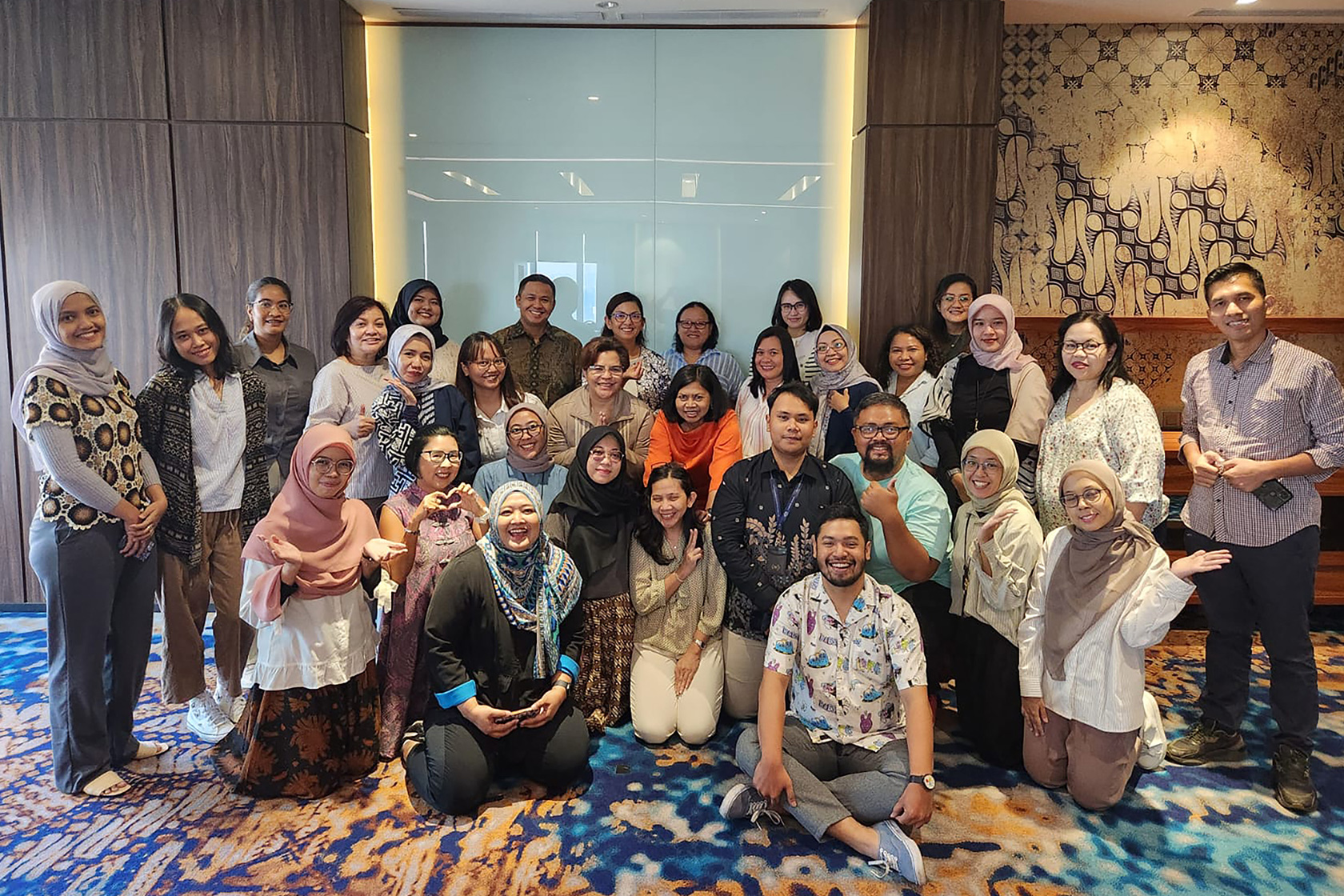
10 September 2024
 Strengthening Safe Spaces: PSEAH Training for DFAT and Partner Organisations
Strengthening Safe Spaces: PSEAH Training for DFAT and Partner Organisations
Raising awareness is key to creating and maintaining workplaces free of sexual harassment, assault, and other types of violence. On July 30, 2024, a Policy on Sexual Exploitation, Abuse of Authority, and Harassment (SEAH) training session was held for staff from the Department of Foreign Affairs and Trade (DFAT), DFAT-funded programs, including Australia Awards in Indonesia (AAI), and Tetra Tech International Development.
The half-day training, attended by 35 participants, was facilitated by Gender Equality and Disability (GEDSI) Adviser Lia Marpaung and Inclusion and Accessibility Manager Diwya Anindyacitta. The session provided an in-depth understanding of SEAH principles and scope, reporting procedures, and shared responsibilities in preventing and responding to these issues. The goal was to foster a safer environment for all—staff, grant recipients, partners, and contractors—where they could report and address concerns without fear, intimidation, and exploitation.
Ratna Dumila, who coordinates the Australia Awards Short Courses at AAI, emphasised the importance of the training. Delivered in Indonesian to ensure clarity and comprehension, it gave her practical steps for addressing SEAH cases involving scholarship recipients. “This training is crucial for my role as it helps me take the right actions if a scholarship recipient is involved in a SEAH case, whether as a perpetrator or a victim," she stated.
Trudy Djanggur, Indonesia’s Chief Representative of Tetra Tech International Development, who previously attended similar training in 2022, gained new insights into how seemingly benign interactions with colleagues can escalate to harassment. “It’s crucial to have this knowledge to develop effective prevention strategies,” she noted.
The training material underscored the concept of sexual exploitation as fundamentally rooted in power dynamics. It involves manipulating one’s position or authority to exploit others for sexual gain. Examples include paying someone for sexual acts, demanding sexual favours in exchange for job security or contract extensions, or threatening to withhold aid, grants, or other essential services unless such demands are met. Both men and women can be subjected to this form of exploitation, which creates an environment of fear and coercion.
Sexual violence was described as any non-consensual sexual act, ranging from unwanted kissing or touching to violent sexual assault, such as rape or attempted rape. The training highlighted how this can occur when an individual is incapacitated—drunk, drugged, unconscious, or otherwise unable to give explicit consent. It also includes scenarios where threats or pressure are applied to force someone into unwanted sexual activity or when the victim is a minor under 18 years of age.
The training further defined sexual harassment as any unwelcome sexual behaviour of a sexual nature—whether verbal, physical, explicit, or implied—that makes someone feel offended, humiliated, or intimidated. Examples provided during the session included male managers asking female junior staff for their personal phone numbers, inquiring about their intimate lives, or sending sexually explicit images or messages in workplace communication channels like WhatsApp groups.
"Some of these behaviours seem familiar, but once you understand their implications, you realise they are forms of harassment. If you see this happening, you are empowered to speak up and address it," said Trudy.
The importance of safeguarding
Participants were also introduced to the fundamentals of safeguarding, which involves ensuring that no harm comes to anyone during programs or events. "Every program must have safeguarding measures in place,” Trudy emphasised.
Danis Sriwijaya, responsible for coordinating the AAI grants for Australia Awards scholars and Australian alumni, found the training effective in reinforcing the need for robust safeguarding mechanisms and adherence to PSEAH principles to prevent any form of sexual exploitation. "The training methods were engaging and interactive, using adult learning techniques. The case studies and exercises were particularly relevant and up to date," Danis noted.
Muhammad Isradi Alireja, who works with the Australian Regional Trade for Development (RT4D), also found the training valuable. It equipped him with the skills to apply safeguarding principles in his projects and inspired him to initiate similar training for his team.
The training covered essential safeguarding principles, such as maintaining zero tolerance for SEAH actions, addressing gender inequality and power imbalances, promoting inclusive leadership, fostering collective responsibility, prioritising the needs of victims and survivors, and ensuring an accountable reporting system. Ratna added a new perspective on reporting: "Concerns and suspicions should be reported as a preventive measure.”
For complaints and reporting, AAI provides a PSEAH Focal Point that is accessible via email or phone. The Sapa 129 hotline is also available, connected to the Ministry of Women's Empowerment and Child Protection team. Organisations like LBH APIK and Pulih the Peak also offer support services.
Regular risk assessment and management are crucial, especially since all AAI activities are considered high-risk and must comply with DFAT's minimum standards for SEAH protection. This process involves four steps: identifying risks, analysing them, mitigating and managing those risks, and conducting ongoing monitoring and assessment. "Risk management for SEAH must be continuously updated," Trudy highlighted.
Danis concluded by recommending more frequent and longer training sessions. "I suggest refreshing the training annually and extending it to a full day rather than half a day, as it is very beneficial and should not be rushed.”
If you see, hear, or become a victim of SEAH by anyone involved in the AAI program, including employees, please report through this link: oz.link/pseahform. AAI will ensure the identity of the person reporting, the victim or survivor of SEAH remains strictly confidential.
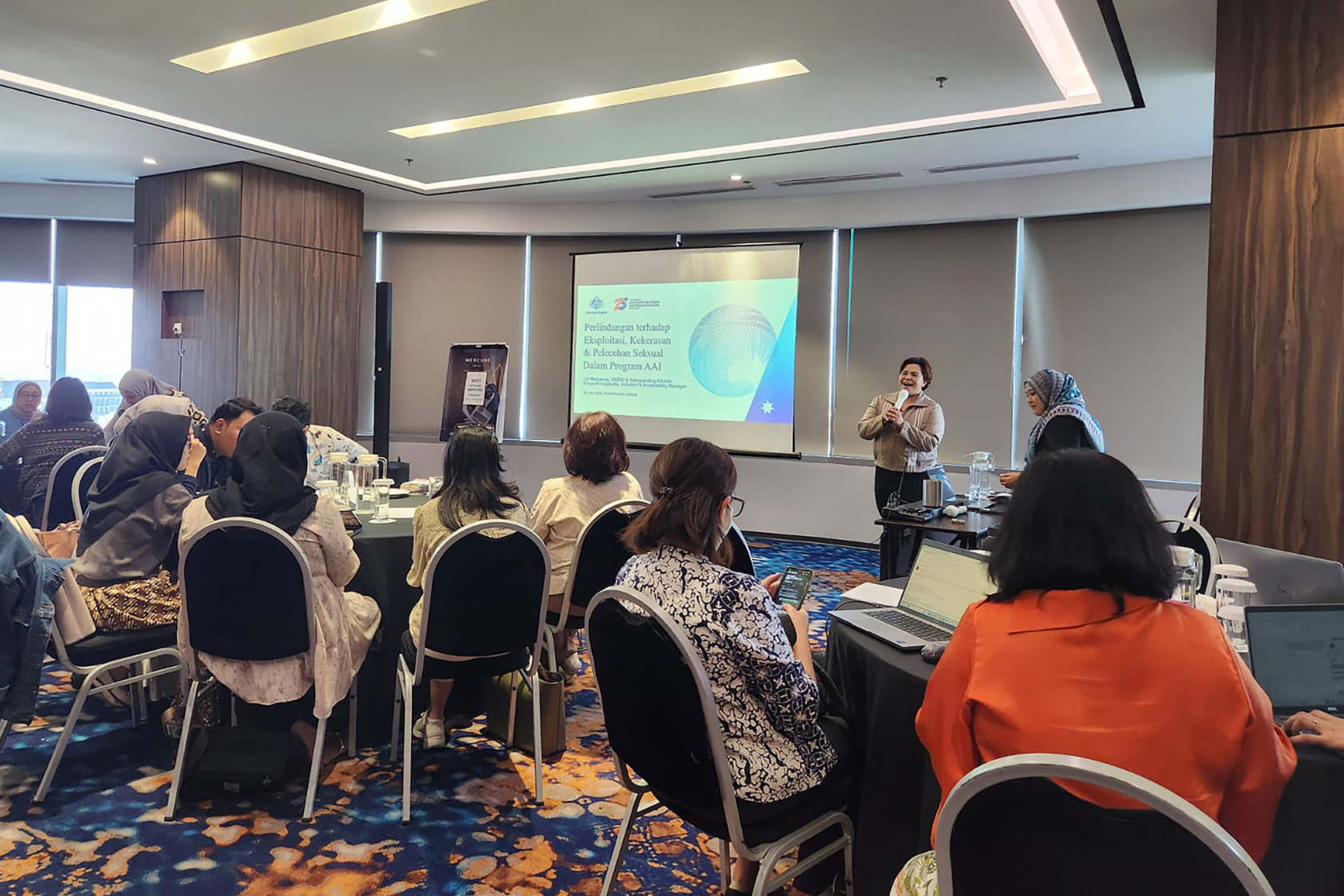
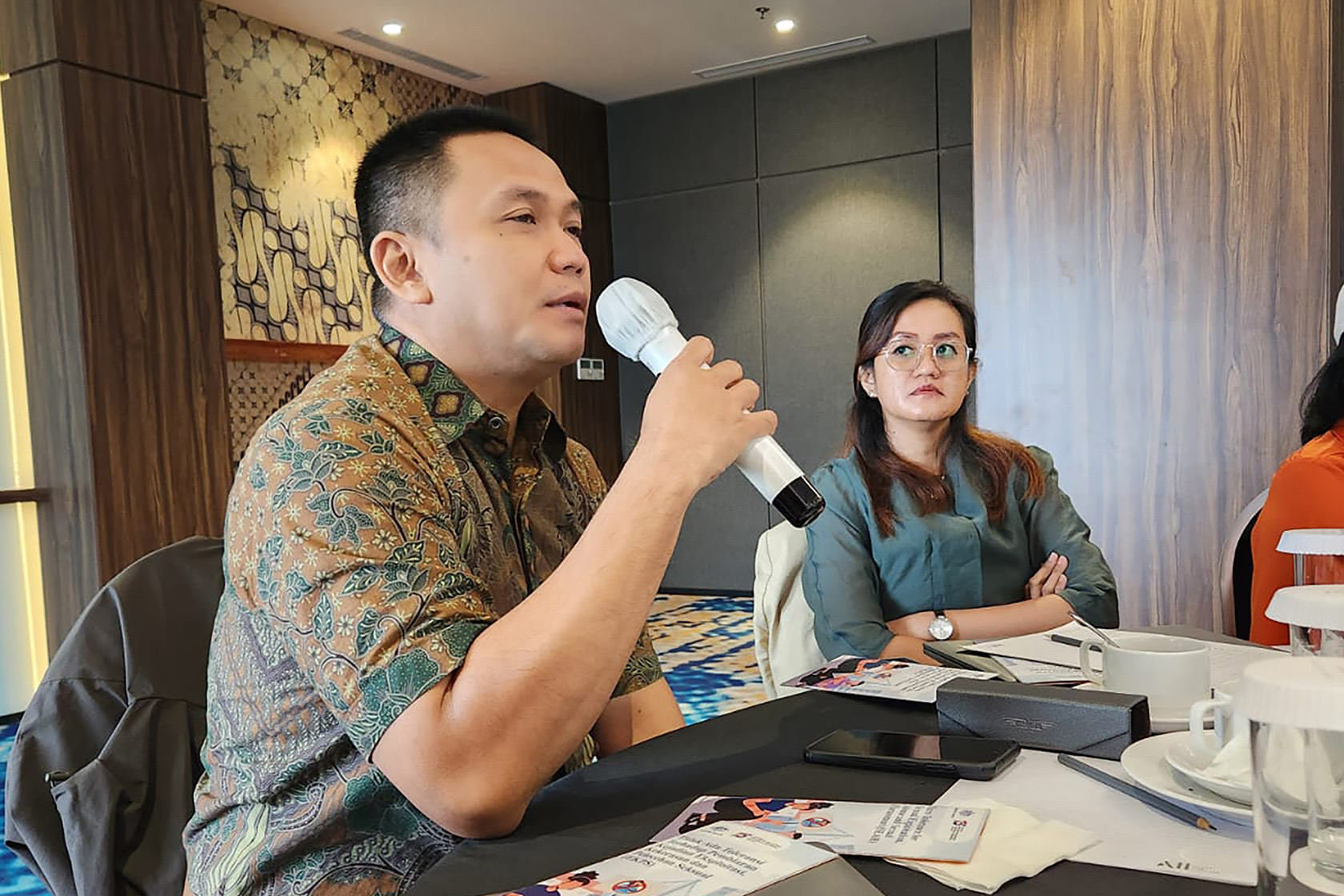
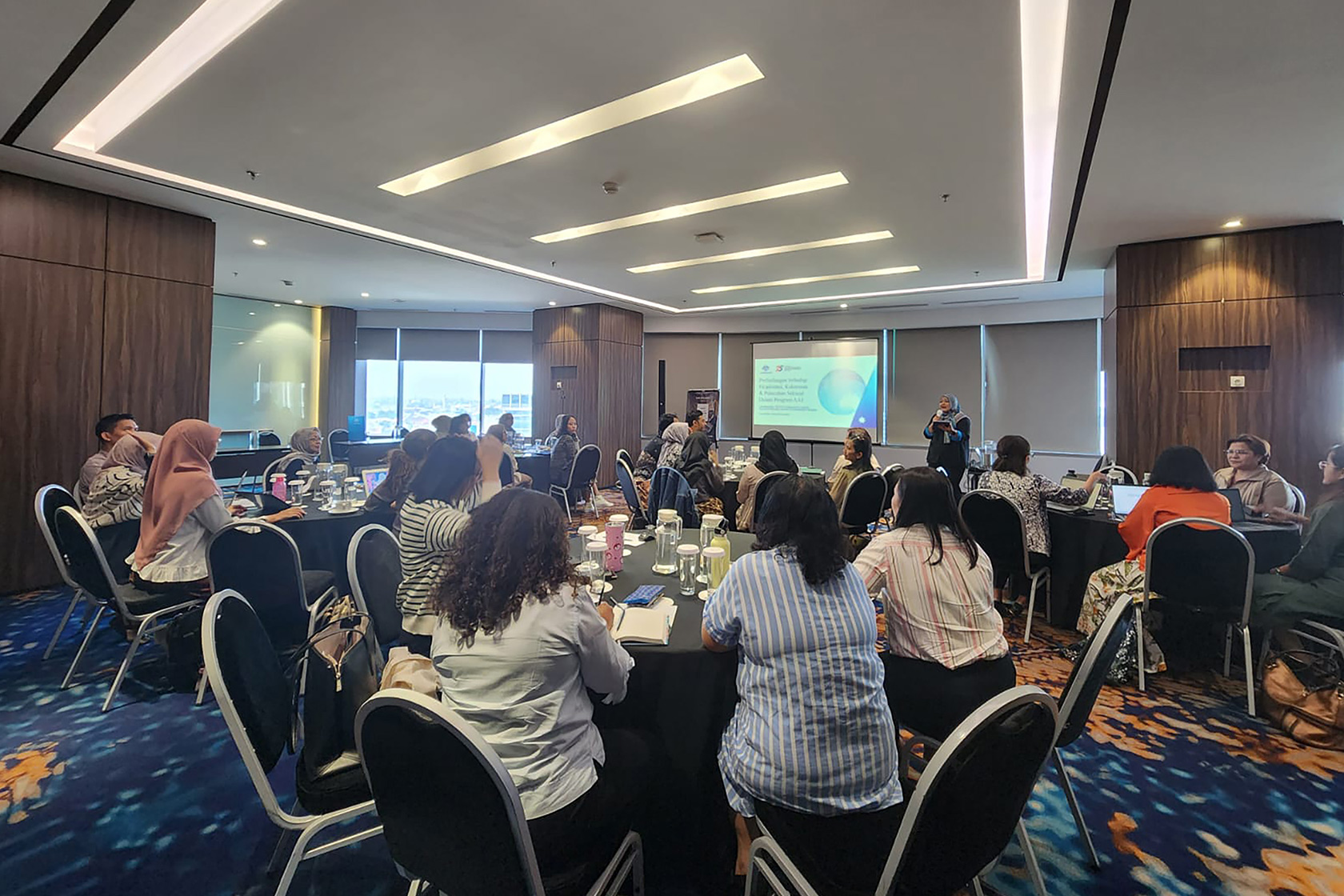
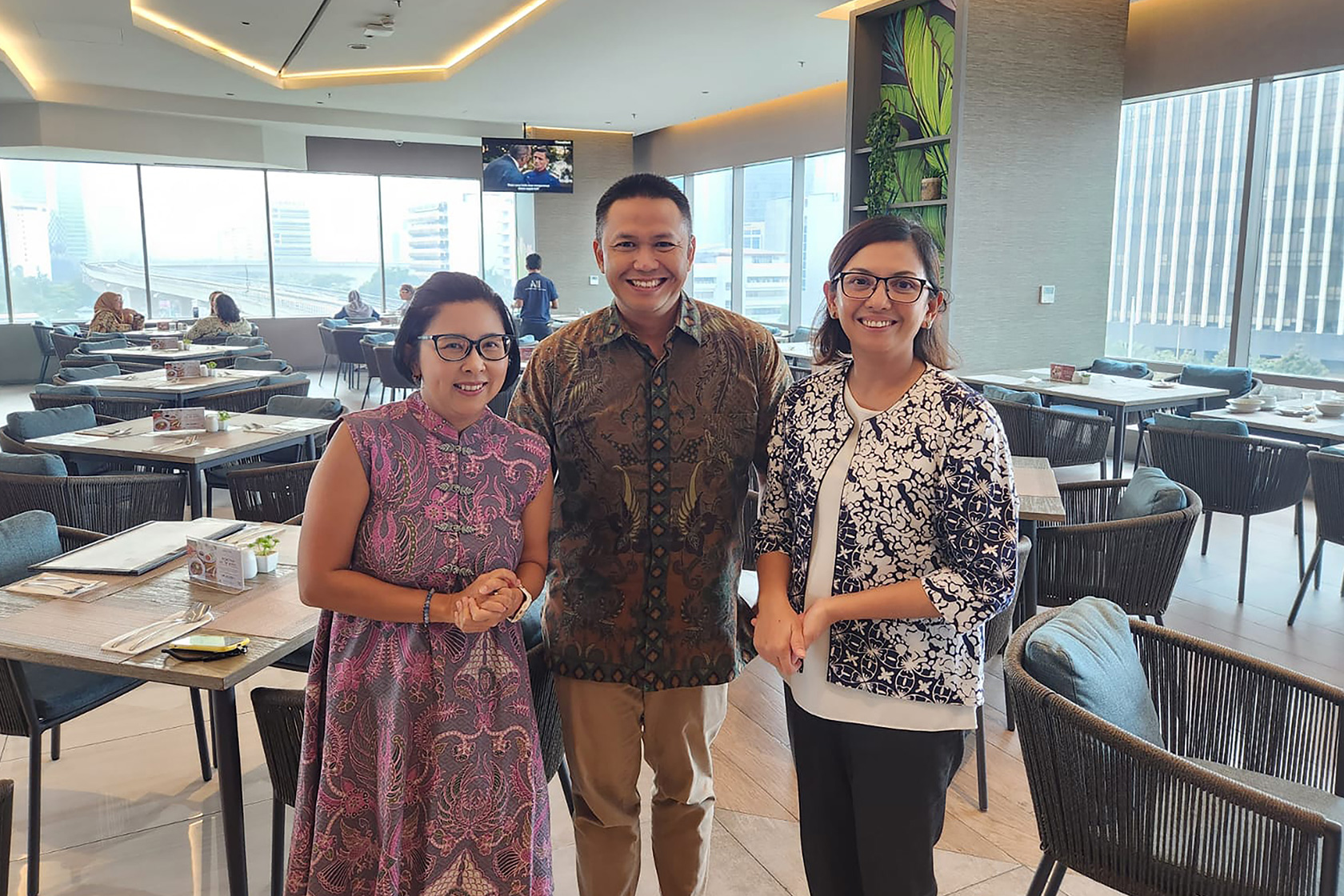
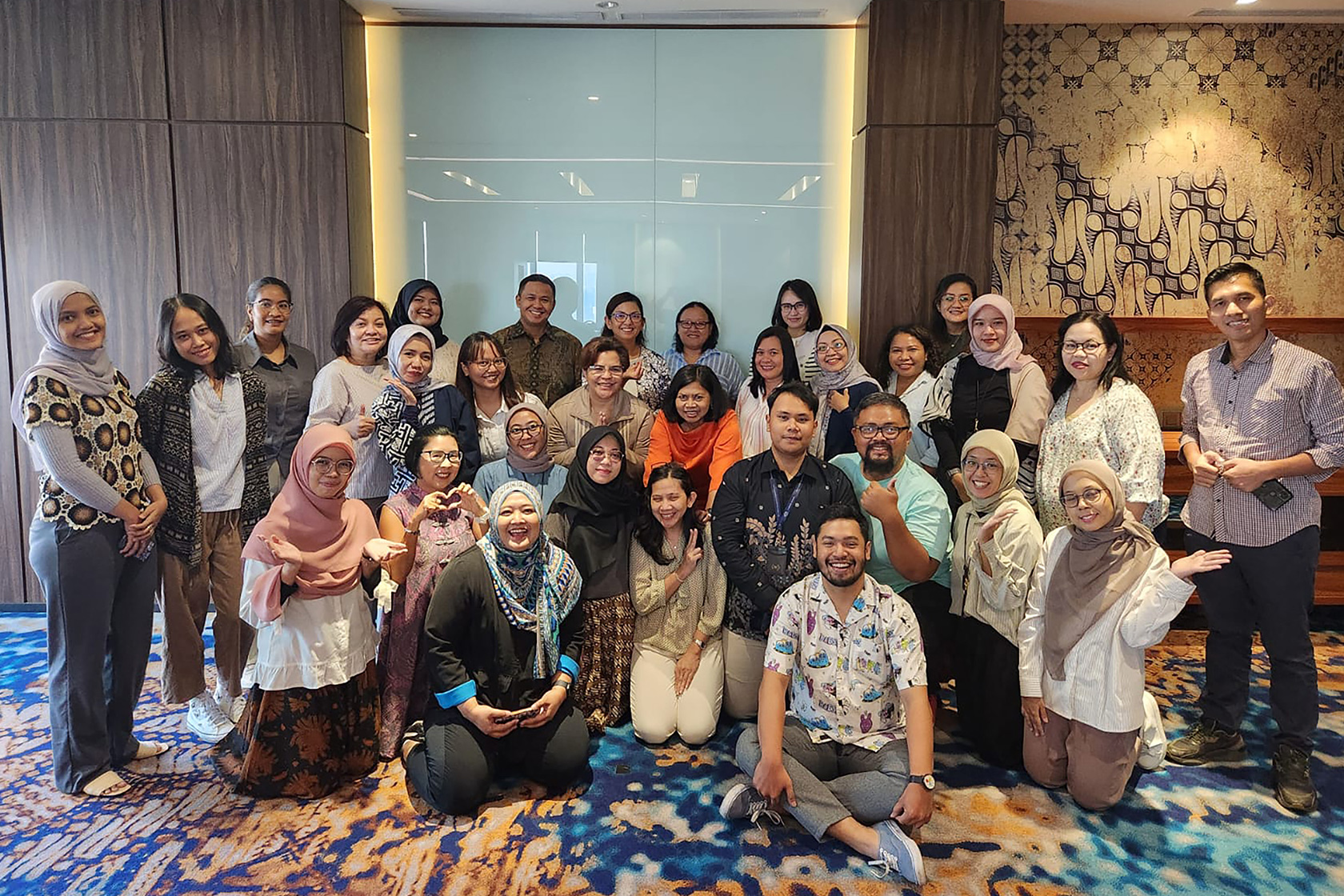
Share this news on:
 Related News
Related NewsThis website uses cookies to improve your website experience. We may also use cookies to analyse website data so that we can improve our online services. To find out more visit our privacy policy.
